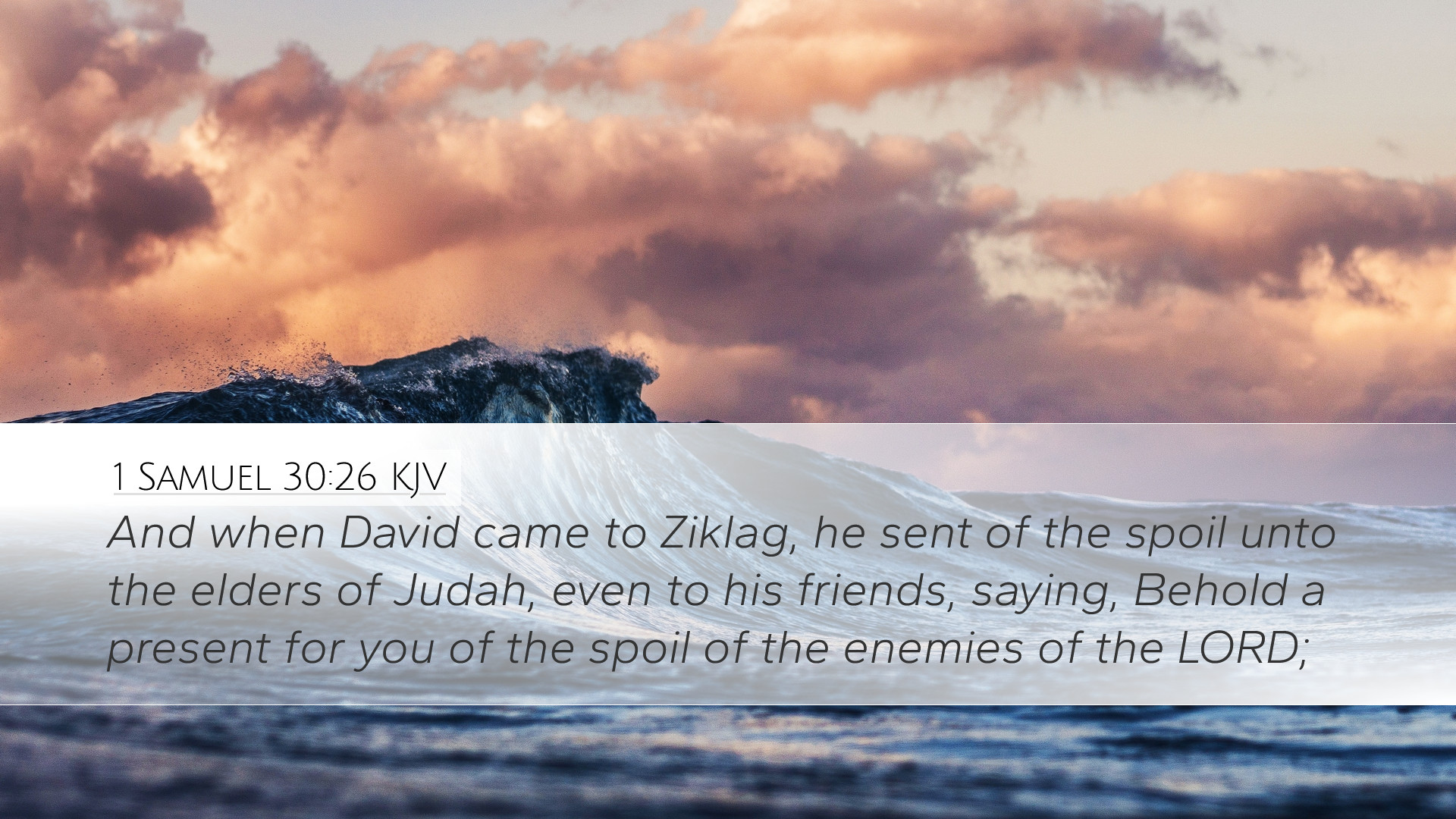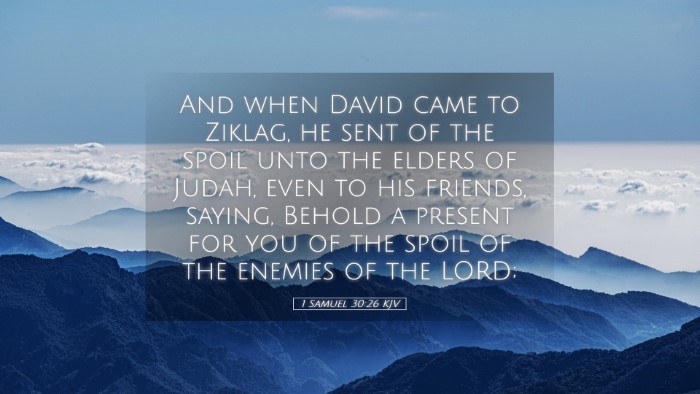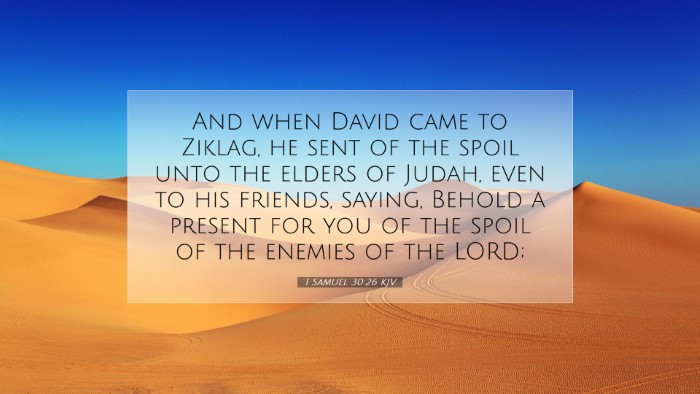Commentary on 1 Samuel 30:26
Verse Context: 1 Samuel 30:26 states, "And when David came to Ziklag, he sent of the spoil unto the elders of Judah, even to his friends, saying, Behold a present for you of the spoil of the enemies of the Lord;" (KJV). This verse occurs after David’s successful raid against the Amalekites and highlights an important moment of leadership, generosity, and the significance of community in the life of David and Israel.
Historical Background
The context surrounding this verse is important for understanding David’s actions. After being pursued by King Saul, David had taken refuge in Ziklag. During his absence, the Amalekites raided Ziklag, taking captives and spoils. David’s subsequent pursuit and victory resulted in a significant amount of spoil. The decision to share this bounty with the elders of Judah demonstrates key aspects of leadership and community commitment in ancient Israel.
Key Themes from Public Domain Commentaries
1. Generosity and Leadership
Matthew Henry emphasizes that David’s act of sending spoil to the elders and friends shows his leadership qualities. He says that a true leader does not hoard the rewards of victory but shares them, fostering relationships and alliances. This action sets a precedent for communal support and generosity among the tribes of Israel.
2. Acknowledgment of God's Providence
Albert Barnes reflects on David’s understanding of the spoil as a blessing from God. By sharing the bounty, David acknowledges God's providence in his victory. Barnes notes that it was important for David to recognize that the spoils were not just for personal gain but were blessings meant to be shared, reinforcing the community’s spiritual bond.
3. The Importance of Community
Adam Clarke brings out the significance of community in David's sharing of the spoils. He sees this action as a means of strengthening the ties to the people of Judah. The act of giving reflects David's understanding of his role not just as a warrior, but as a leader who must also serve the people. Clarke suggests that this establishes a model for community leadership: effective leaders prioritize the welfare and unity of their community.
Implications for Pastoral Leadership
This verse has profound implications for pastors and church leaders today. Just as David modeled generosity and acknowledgment of divine providence, modern leaders are called to reflect these same qualities in their ministry.
- Embrace Generosity: Church leaders are encouraged to embrace a spirit of generosity, sharing resources and blessings with their congregation and the wider community.
- Acknowledge God's Provision: It is essential for leaders to recognize and articulate the faithfulness of God in their ministries, encouraging the congregation to do the same.
- Foster Community: Building strong relationships within the church community is vital. Leaders should prioritize creating an environment of mutual support and responsibility.
Theological Reflections
Theologically, this verse offers rich insights into the nature of God’s provision and human responsibility. It showcases the belief that blessings are not solely for individual benefit but are to be used for the glory of God and the good of the community.
- Stewardship of Blessings: The concept of stewardship is highlighted, where leaders must manage the blessings they receive in ways that honor God and serve others.
- Divine Guidance in Decision-Making: David’s actions underscore the importance of seeking divine guidance in leadership decisions, an essential practice for contemporary church leaders.
- Unity in Diversity: By reaching out to elders and representatives of different groups within Israel, David’s actions call for unity among believers despite diversity in backgrounds and struggles.
Conclusion
1 Samuel 30:26 serves as a poignant reminder of the principles of leadership rooted in generosity, community, and recognition of God’s providence. For pastors and church leaders, the model of David's actions highlights the importance of collaborative relationships, stewardship of blessings, and nurturing a community that reflects God's abundant grace. As modern believers reflect on this scripture, they are encouraged to embody the spirit of generosity and community that David exemplified, thereby building a vibrant and united church.


